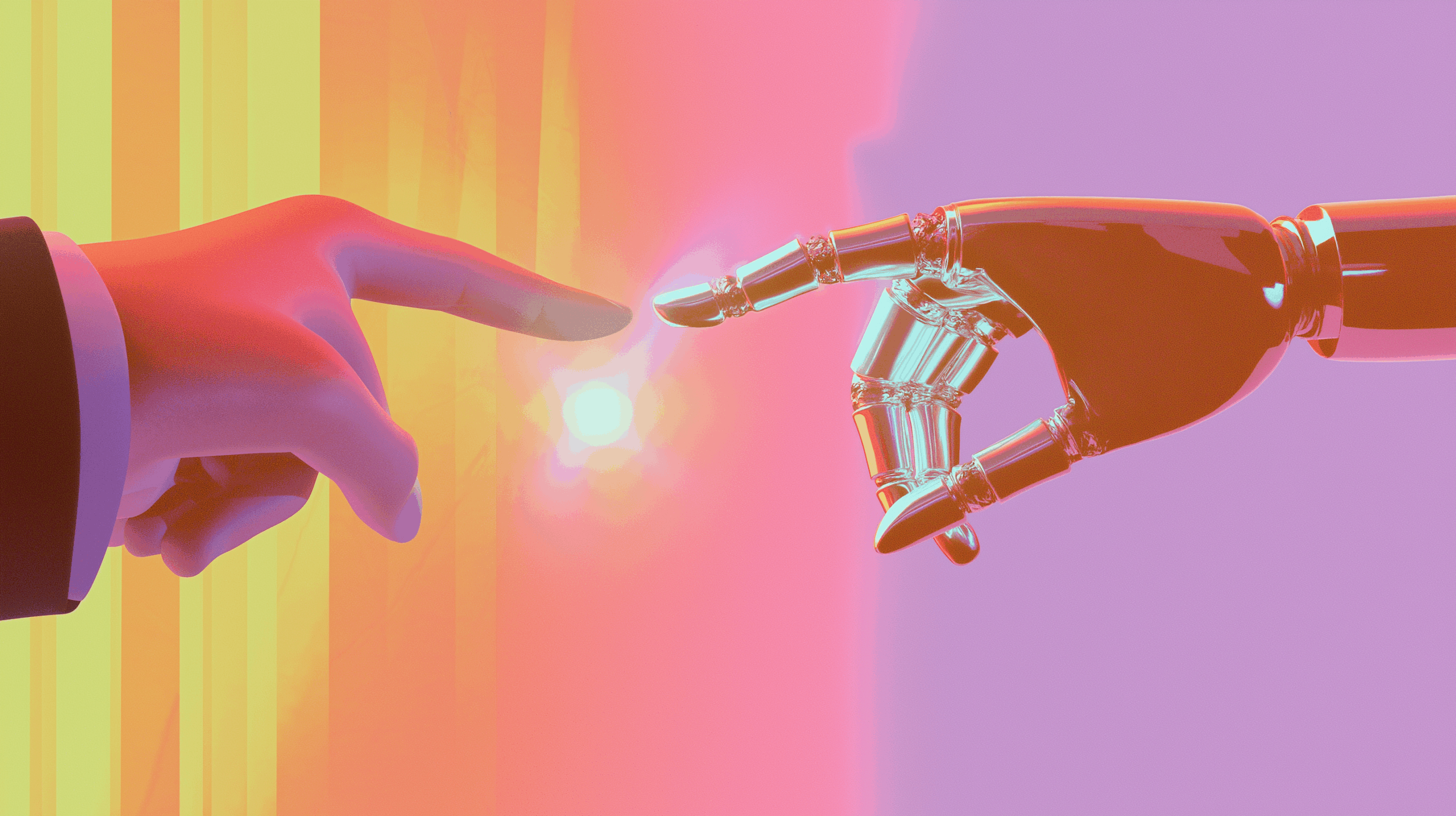The augmented procurement professional: How AI expands human capabilities
Procurement has always been about more than buying goods and services. Finding the right suppliers, managing risk, negotiating strategically – and making sure the business gets the best value. But as global supply chains become more complex and data-driven, the demands on procurement teams have changed and grown significantly.
And the new reality calls for a new kind of procurement professional – an augmented one. Someone who works hand-in-hand with AI to achieve more than either could alone.
Why procurement needs augmentation
Procurement teams today face challenges that didn’t exist a decade ago. Supply chains are longer and more fragile. Regulations are stricter. Sustainability is no longer optional. And the volume of data – from supplier performance metrics to ESG disclosures and market signals – well, it’s overwhelming.
Humans alone can’t process all this information at the speed they’re required to. That’s why they need the support of AI. Machine learning algorithms can detect patterns, analyze risks, and forecast demand with far greater speed and accuracy than manual methods.
But here’s the key: AI is not a replacement for human expertise. It doesn’t understand context, relationships, or the subtle nuances of negotiation. What it does is give procurement professionals superpowers – augmenting their ability to make smart, strategic decisions.
Hence, the augmented procurement professional.
What augmentation looks like in practice
So what does an “augmented” procurement role actually look like? Let’s break it down into a few key areas.
1. Data-driven decision-making
Traditionally, procurement decisions have relied on historical data, gut instinct, and experience. Those still remain valuable, but AI adds another layer by analyzing vast datasets in seconds, including:
- Spend analysis: AI tools can highlight inefficiencies, detect maverick spending, and suggest areas for cost savings.
- Supplier performance tracking: Instead of waiting for quarterly reports, AI continuously monitors supplier delivery times, quality, and compliance.
- Risk management: AI can scan global news, financial databases, and even social media to flag early warning signs of supplier instability.
For the procurement professional, this means fewer blind spots. And more confidence in their decisions.
2. Smarter supplier selection
Choosing the right supplier has always been both an art and a science. AI tips the balance toward science (not excluding the art, mind you), helping shortlist suppliers based on criteria like cost, delivery reliability, and past performance.
But here’s where augmentation comes in: once AI generates the shortlist, humans evaluate the intangibles. Does this supplier align with the company’s culture? Will they be a reliable partner in times of crisis? That blend of machine efficiency and human judgment helps form stronger supplier relationships.
3. Enhanced negotiations
Negotiation is one of the areas where human skills shine brightest. Empathy, trust-building, and emotional intelligence can’t be automated. But AI can give negotiators an edge by:
- Providing real-time benchmarking against market prices.
- Running scenario simulations (e.g., what happens if order volumes change?).
- Highlighting historical data from previous contracts with the same supplier.
The augmented procurement professional walks into negotiations armed with insights – but closes the deal with human skills.
4. Proactive sustainability and compliance
Sustainability and compliance are increasingly central to procurement strategies. AI can help track supplier adherence to ESG goals, flag compliance risks, and even recommend more sustainable sourcing options.
But humans still need to make value-based decisions, like choosing to prioritize long-term sustainability over short-term cost savings. AI provides the information, but people provide the principles.
The new skills procurement professionals need
As AI takes on more of the heavy lifting, the role of the procurement professional evolves. To thrive in this augmented environment, teams should build skills that complement AI’s strengths.
- Strategic thinking: With AI handling data analysis, humans can focus on long-term planning and alignment with business goals.
- Relationship management: Building trust with suppliers remains a distinctly human strength.
- Critical judgment: Knowing when to trust AI insights and when to challenge them is essential.
- Change management: Procurement leaders need to help teams adapt to new tools and workflows.
In a nutshell, the most valuable procurement professionals of the future will be those who can balance technical knowledge with soft skills.
Overcoming barriers to augmentation
Not every organization has fully embraced AI in procurement yet. Some of the most common barriers include:
- Trust gaps: Professionals may worry that AI will make decisions they can’t fully understand.
- Skills gaps: Teams might feel unprepared to use new technologies effectively.
- Cultural resistance: Change is hard, especially when it challenges traditional ways of working.
Overcoming these barriers requires transparency, training, and clear communication. Procurement leaders should frame AI as a partner, not a replacement, and involve their teams in shaping how the tools are used.
The future of the augmented procurement professional
AI will continue to evolve, there’s no doubt about that. Natural language processing will make contract analysis even more precise. Predictive analytics will grow more accurate. Supplier risk monitoring will become real-time.
But one thing won’t change: the human role at the heart of procurement. Machines can process data, but they can’t build trust, weigh ethical considerations, or lead strategic change.
The future isn’t AI versus humans. It’s AI with humans. And the procurement professionals who embrace augmentation will be the ones driving innovation, resilience, and competitive advantage in their organizations.
The bottom line
AI in procurement isn’t about automation for its own sake. It’s about augmentation – expanding human capabilities so procurement professionals can focus on the work that truly matters: strategy, relationships, and long-term value.
At Zingflow, we see the future of procurement as human-led and AI-powered. When you embrace augmentation, you can build procurement teams that are not just more efficient but also more agile, resilient, and impactful.






